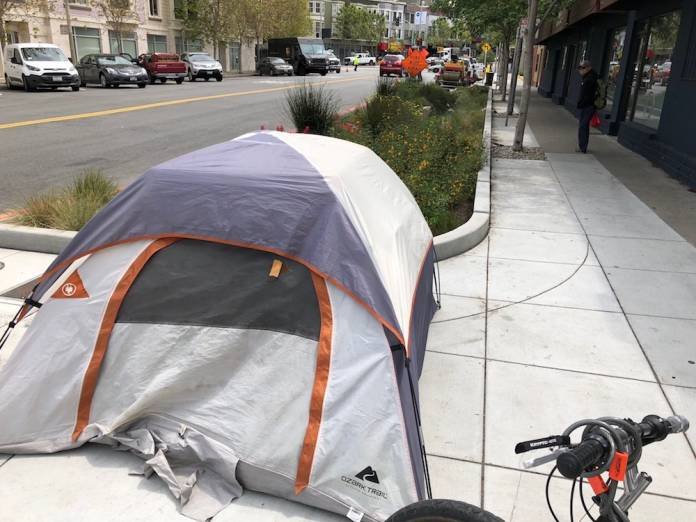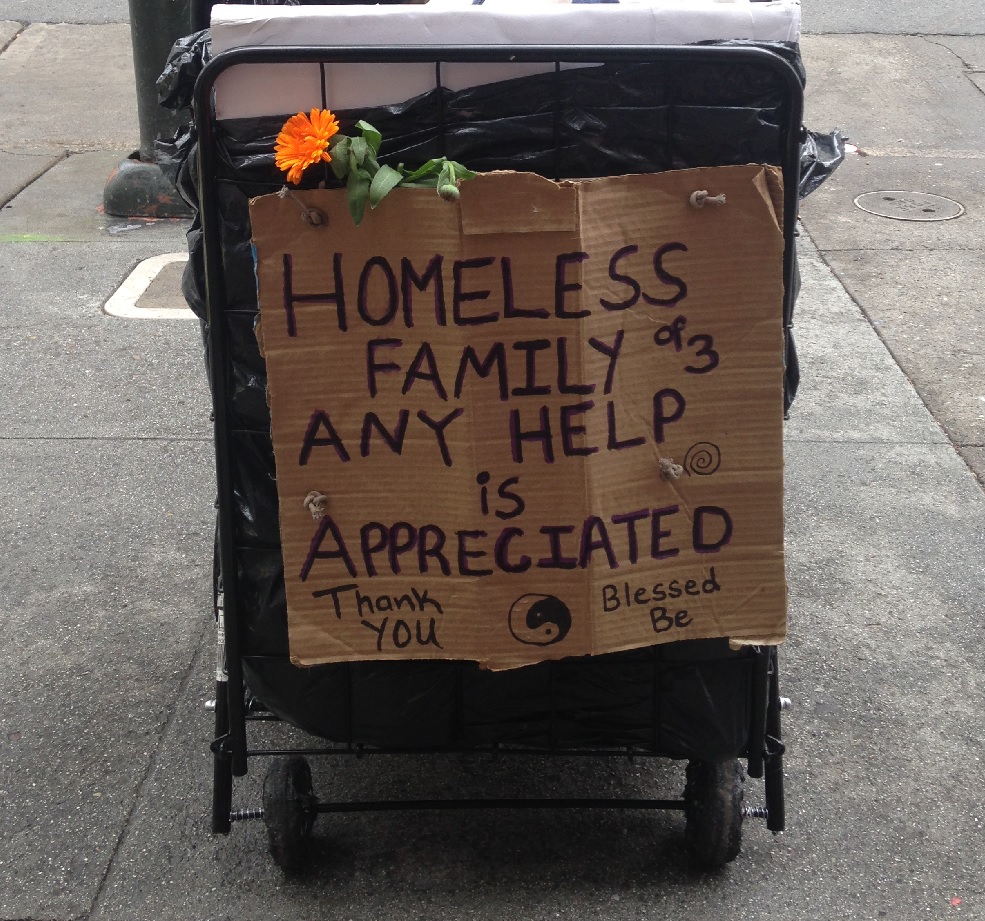
The Chron, which lost any hope of claiming objectivity during the mayor’s race, is now clearly on the side of the Chamber of Commerce on the fall ballot measure that would raise money from the biggest businesses in town to fund solutions to the homeless crisis.
The story is kind of odd: The headline is “SF business tax memo could result in middle-class job flight.”

The first paragraph makes it appear as if there is real evidence to support that claim:
San Francisco’s narrowing middle class, already squeezed by the high cost of living could take another hit if a new business tax is approved in the November election, according to the city’s Office of Economic and Workforce Development.
The entire, complete, argument for that is as follows:
But, according to a memo sent to the mayor’s office by the Office of Economic and Workforce Development last week and obtained by The Chronicle, the extra tax would disproportionately impact employees in mid-level jobs, such as administrative staff in retail companies and grocery store workers.
First: The tax would not impact any employees at all. None of them would pay a penny. It would impact the biggest businesses in town – including the Hearst Corporation, which finally had to admit that it has a conflict of interest here, since it publishes the Chron.
Second: Since when does OEWD do an analysis of ballot measures? I’ve never seen that before. The mission of that office is pretty clear -– and it doesn’t involve any partisan discussion of the costs of a ballot measure.
I don’t have the memo that the Chron has “obtained.” Maybe the paper – based on a tip or at random – asked for a copy. I’ve filed my own public-records request for it, and will share the whole thing with you when I get it.
More likely, someone who is affiliated with Mayor London Breed and OEWD sent a copy to the Chron, with the aim of undermining the tax.
The mayor has yet to make a statement on the ballot measure. However, she just appointed Joaquin Torres to head OEWD, and he seems to be pretty clearly in the opposition:
“We need to be conscious of who our revenue generating measures are affecting. In this case, it seems the potential to impact middle income jobs should cause concerns,” said Joaquín Torres, director of the Office of Economic and Workforce Development.
City departments aren’t supposed to take positions on candidates or ballot measures. The City Attorney’s Office is clear on this. It’s okay for a department to prepare an unbiased, objective analysis of a ballot measure, which must be released to the public.
This particular memo is not on the OEWD website where press releases are normally posted. The term “obtained by the Chronicle” tends to be used when the paper has exclusive access to a document that has not been released in the normal course of business.
The City Attorney’s Office says any analysis of a ballot measure should be distributed and publicized “consistent with the department’s regular practice.”
The department “should not use special methods – such as methods associated with political campaigns – to distribute its analysis.”
Okay, so as I said, that’s all a bit odd.
Now let’s get to the point of the memo.
The Coalition on Homelessness has a detailed response:
Major shortcomings of analysis indicate ideological bias:
-
Failed to demonstrate that the 300 to 400 largest mega-corporations in San Francisco that would be impacted by the measure would actually be paying less taxes than they were paying pre-Trump tax break four months ago.
-
Conflated multiple potential ballot measures, including a statewide ballot measure and one measure that has already been removed from the ballot (the Uber tax). The homeless revenue measure being criticized represented only 30 percent to 40 percent of the total taxes analyzed by the study.
-
Provided no data or evidence to back up speculation about potential job loss. Even so, it was stated that such job loss was unlikely to happen immediately but would potentially happen “over decades.”
-
Failed to analyze impact of our unrelenting homeless crisis on jobs such as those in the tourism industry. Tourism experts such as the Hotel Council have warned that “what our employees, visitors and customers confront daily on the streets of San Francisco risks our city’s future.” (Kevin Carroll, Hotel Council, quoted in SF Chronicle 4/23/18)
-
Failed to account for new employment that will be generated by the measure. The $300 million a year generated by the measure will move funds directly back into the local economy. The measure will add additional jobs in the form of case workers, middle class HSH administrative staff, and construction jobs.
-
Failed to analyze the true impact on a tax that is only an averageof .5 percent and only on income above $50 million. A large business bringing in $54 million a year, would only pay the tax on the $4 million. Retail only pays less then 2/10th of a percent, meaning that the additional tax on retail will be only $1,750 for every $1,000,000 in gross receipts over $50 million.
In other words: Hard to see how this is going to cause any job loss at all.
In fact, the Chronicle/Chamber of Commerce position fits exactly with the failures of the tax cuts we saw under Reagan, Bush, and then Trump: Businesses haven’t used that money to invest in new jobs in the United States. The tax cuts haven’t been job-creators; they’ve just been used to further expand the wealth gap, enriching a few at the expense of everyone else.
I repeat the request I made to Jim Lazarus, vice president and policy director at the Chamber last week:
If you don’t like this tax, please tell us where you would find the money it’s going to take to seriously address homelessness. Still waiting to hear from him.


